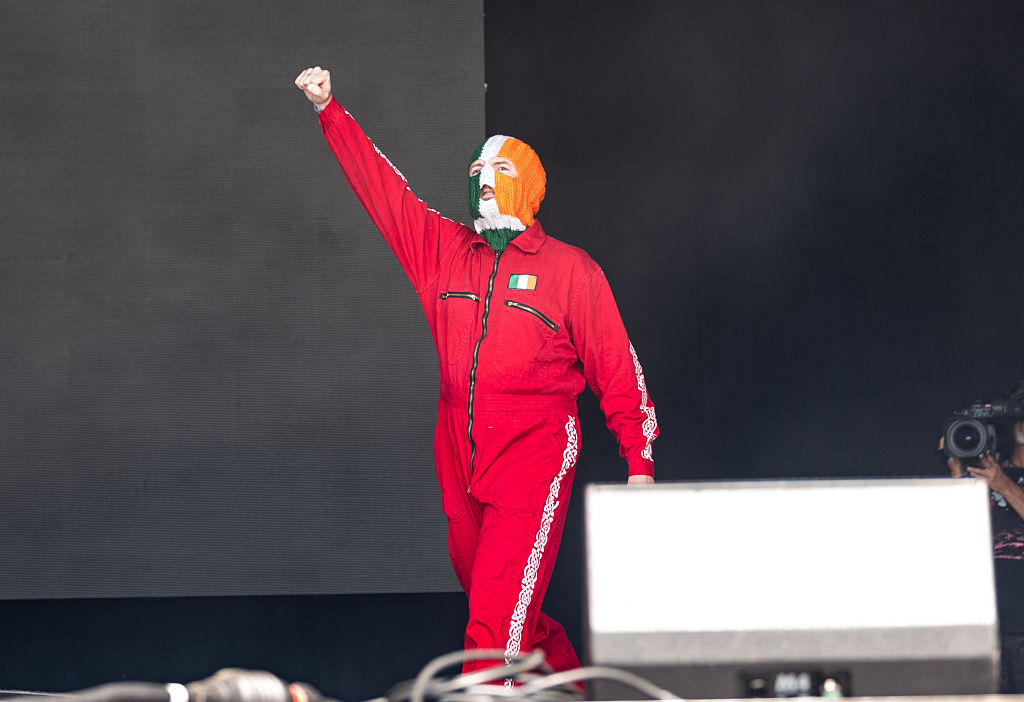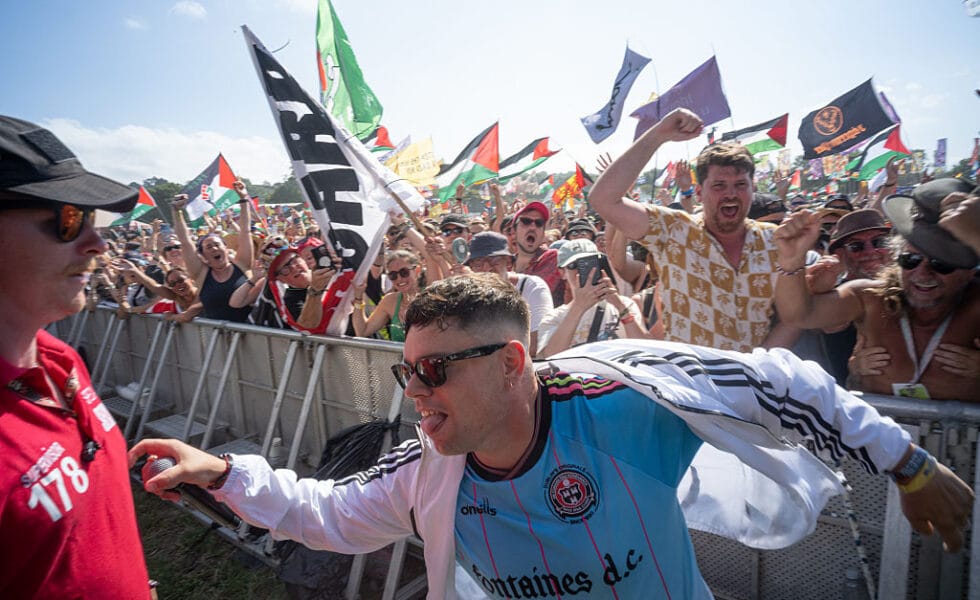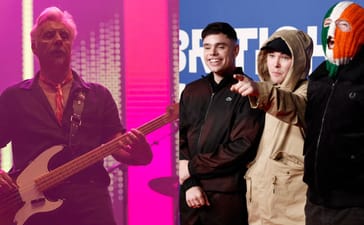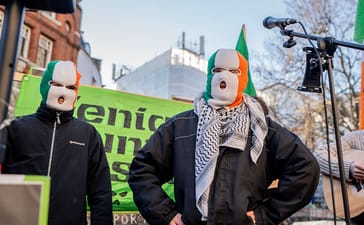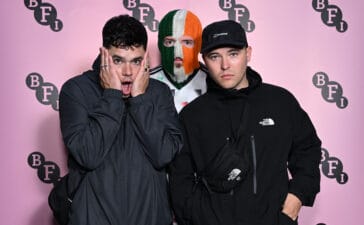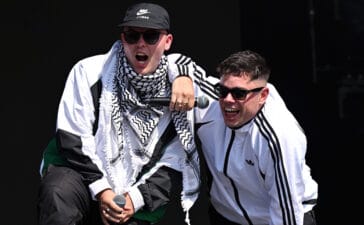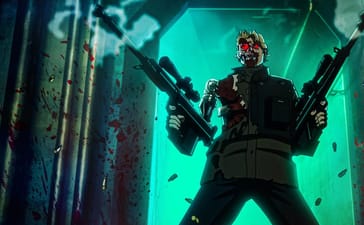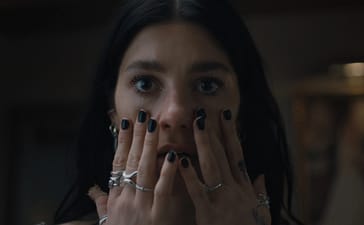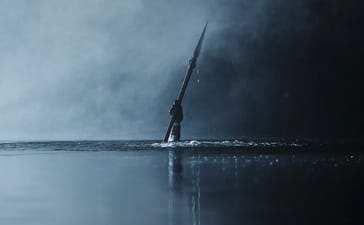The fallout from Glastonbury 2025 has kicked into overdrive, with Avon and Somerset Police now reviewing footage from the festival’s West Holts Stage to determine whether criminal charges may be on the table.
The acts in question? Rap-punk agitators Bob Vylan and Belfast’s Irish-language firestarters Kneecap. Both brought politically charged fury to the stage on Saturday. One was broadcast live by the BBC. The other was shut out in advance.
Bob Vylan’s set ignited immediate backlash after frontman Bobby Vylan led the crowd in chants of “Free, free Palestine” and “Death, death to the IDF.” The BBC, which aired the performance live, scrambled to issue a warning about “very strong and discriminatory language” but the damage was done. By Sunday, the set had been pulled from BBC iPlayer and a spokesperson admitted some of the content was “deeply offensive.” The Israeli Embassy posted that it was “deeply disturbed by the inflammatory and hateful rhetoric.” Culture Secretary Lisa Nandy wasted no time, reportedly calling BBC Director General Tim Davie to demand answers on what kind of vetting process had been done beforehand.
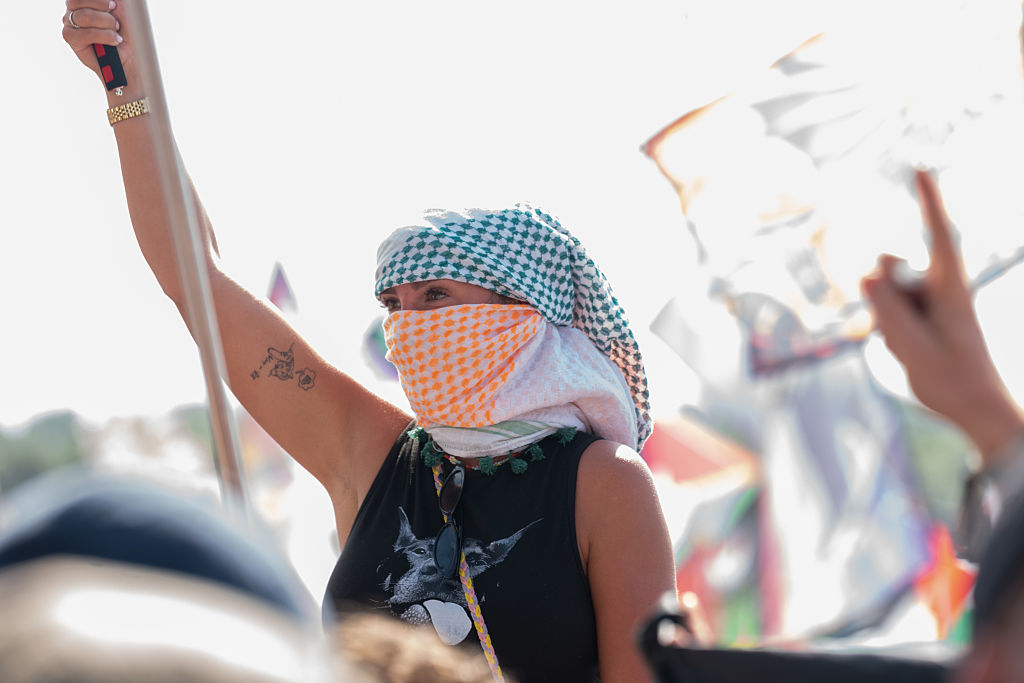
Kneecap, who played immediately after, were never even given a shot at airtime. The BBC had already made the call to exclude the group from broadcast, a decision that became public in the weeks leading up to the festival when UK Prime Minister Keir Starmer said the band’s presence at Glastonbury was “not appropriate.” Kneecap responded the only way they know how — by weaponising the moment on stage. Thousands watched live as the trio launched a blistering verbal takedown of Starmer, spitting expletive-laced chants straight at the Labour leader. It was a performance steeped in rebellion, nationalism, and unfiltered rage.
The police have now confirmed that footage from both sets is being examined. “Video footage will be assessed by officers to determine whether any offences may have been committed that would require a criminal investigation,” a spokesperson for Avon and Somerset Police said in a statement.
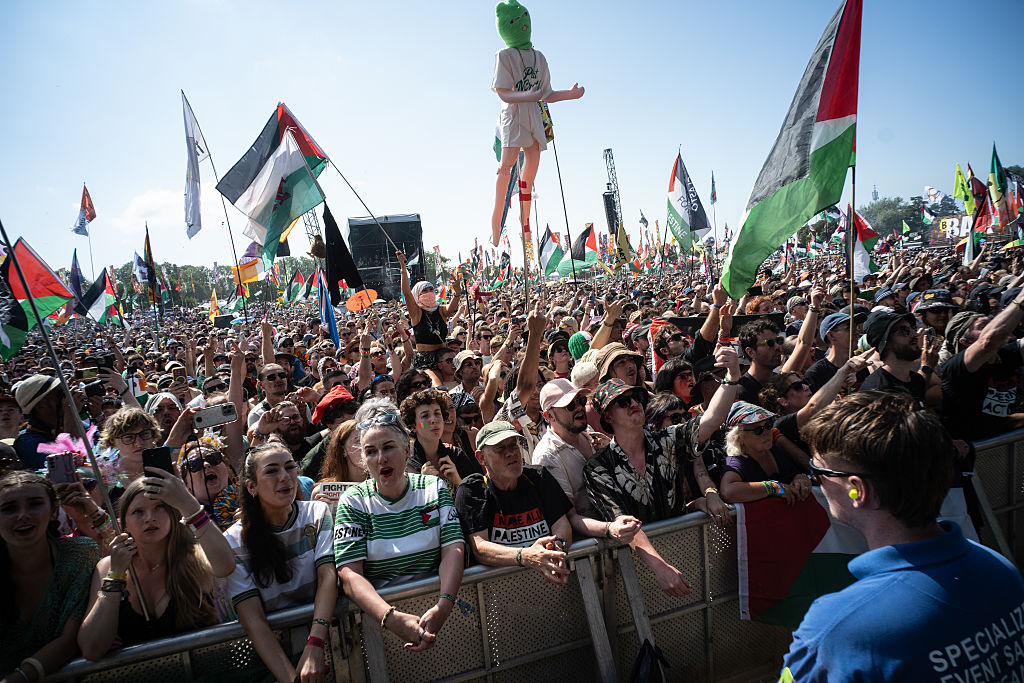
This all follows weeks of intensifying pressure around Kneecap’s growing political presence. Mo Chara, one of the group’s vocalists, is currently facing terrorism charges for allegedly displaying a Hezbollah flag during a gig last year — a charge he denies. Despite that, or maybe because of it, the group has surged in visibility, using their Glastonbury appearance to push back against media narratives, institutional policing and the British government itself.
The situation paints a strange picture of broadcast priorities. Kneecap were silenced before they said a word. Bob Vylan were aired without hesitation, and now the BBC is on its back foot, copping heat for allowing incendiary language to go out to a national audience. For critics, it reeks of selective censorship. For others, it raises deeper questions about who gets platformed, who gets pre-emptively shut down, and what accountability actually looks like when artists say the quiet part out loud.
In the middle of it all are two bands who came to Glastonbury with something to say, and now might find themselves on the other end of a criminal probe. Whether that sticks remains to be seen, but one thing’s certain, this year’s Glasto isn’t being remembered just for the music. It’s also being remembered for who got heard, who got silenced, and who the system decided was too dangerous to trust with a microphone.
